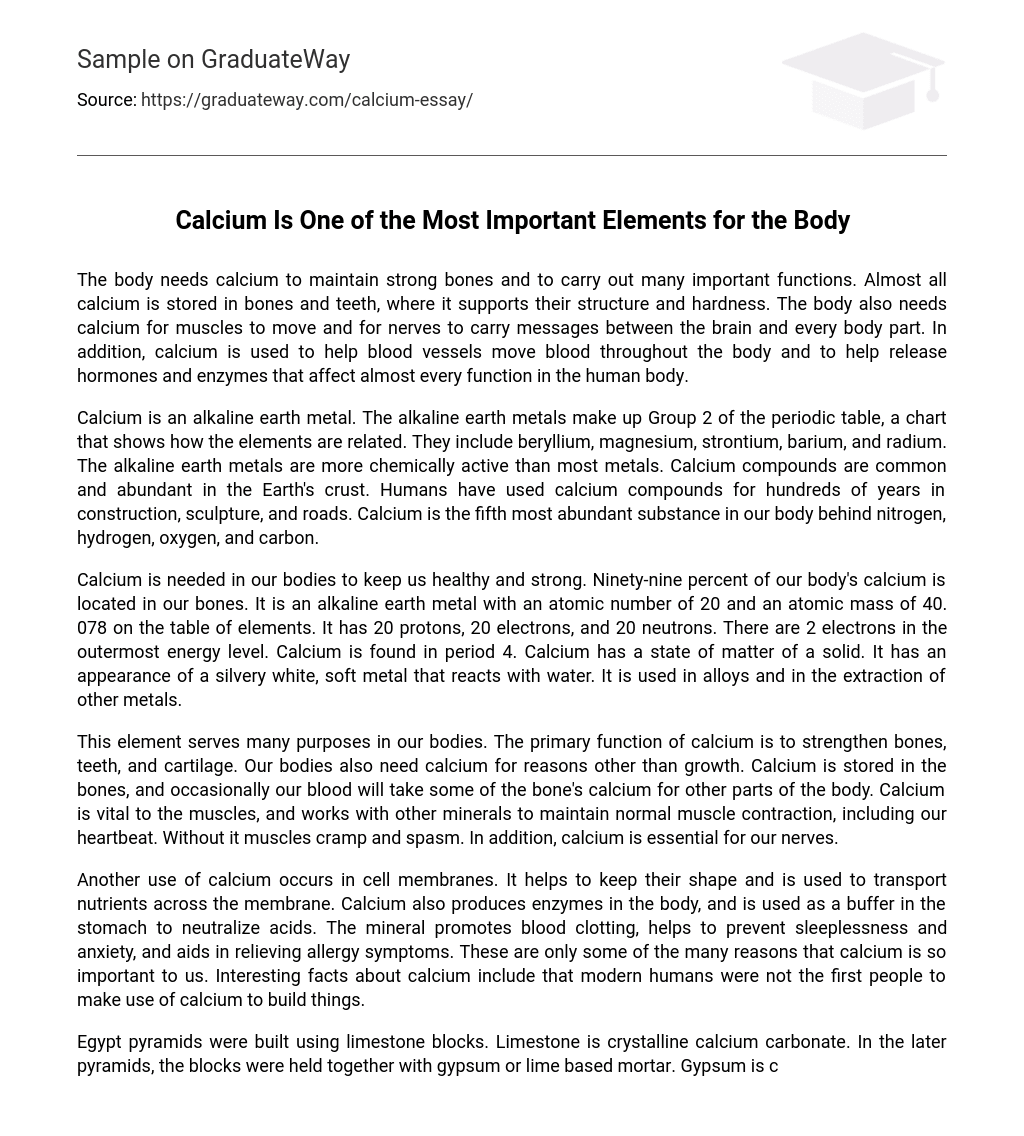The body needs calcium to maintain strong bones and to carry out many important functions. Almost all calcium is stored in bones and teeth, where it supports their structure and hardness. The body also needs calcium for muscles to move and for nerves to carry messages between the brain and every body part. In addition, calcium is used to help blood vessels move blood throughout the body and to help release hormones and enzymes that affect almost every function in the human body.
Calcium is an alkaline earth metal. The alkaline earth metals make up Group 2 of the periodic table, a chart that shows how the elements are related. They include beryllium, magnesium, strontium, barium, and radium. The alkaline earth metals are more chemically active than most metals. Calcium compounds are common and abundant in the Earth’s crust. Humans have used calcium compounds for hundreds of years in construction, sculpture, and roads. Calcium is the fifth most abundant substance in our body behind nitrogen, hydrogen, oxygen, and carbon.
Calcium is needed in our bodies to keep us healthy and strong. Ninety-nine percent of our body’s calcium is located in our bones. It is an alkaline earth metal with an atomic number of 20 and an atomic mass of 40. 078 on the table of elements. It has 20 protons, 20 electrons, and 20 neutrons. There are 2 electrons in the outermost energy level. Calcium is found in period 4. Calcium has a state of matter of a solid. It has an appearance of a silvery white, soft metal that reacts with water. It is used in alloys and in the extraction of other metals.
This element serves many purposes in our bodies. The primary function of calcium is to strengthen bones, teeth, and cartilage. Our bodies also need calcium for reasons other than growth. Calcium is stored in the bones, and occasionally our blood will take some of the bone’s calcium for other parts of the body. Calcium is vital to the muscles, and works with other minerals to maintain normal muscle contraction, including our heartbeat. Without it muscles cramp and spasm. In addition, calcium is essential for our nerves.
Another use of calcium occurs in cell membranes. It helps to keep their shape and is used to transport nutrients across the membrane. Calcium also produces enzymes in the body, and is used as a buffer in the stomach to neutralize acids. The mineral promotes blood clotting, helps to prevent sleeplessness and anxiety, and aids in relieving allergy symptoms. These are only some of the many reasons that calcium is so important to us. Interesting facts about calcium include that modern humans were not the first people to make use of calcium to build things.
Egypt pyramids were built using limestone blocks. Limestone is crystalline calcium carbonate. In the later pyramids, the blocks were held together with gypsum or lime based mortar. Gypsum is calcium sulfate dehydrate and lime is calcium oxide. Another interesting fact is that cells in animals and plants must communicate with other cells. This is called signaling. Calcium ions are the most important messengers between cells in living things and are absolutely vital for the existence of multicultural life forms.





